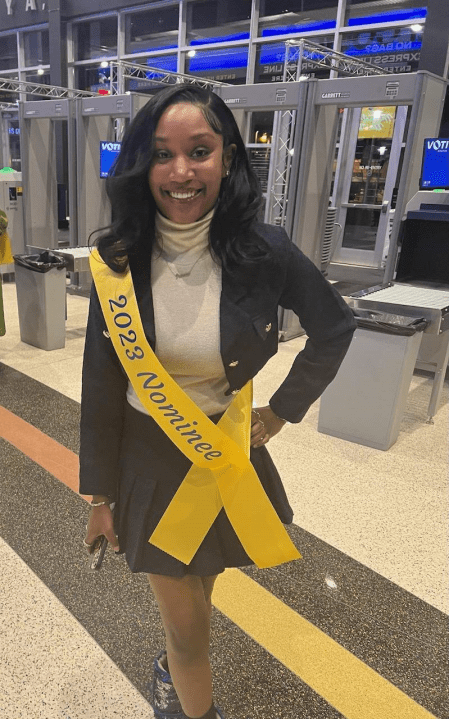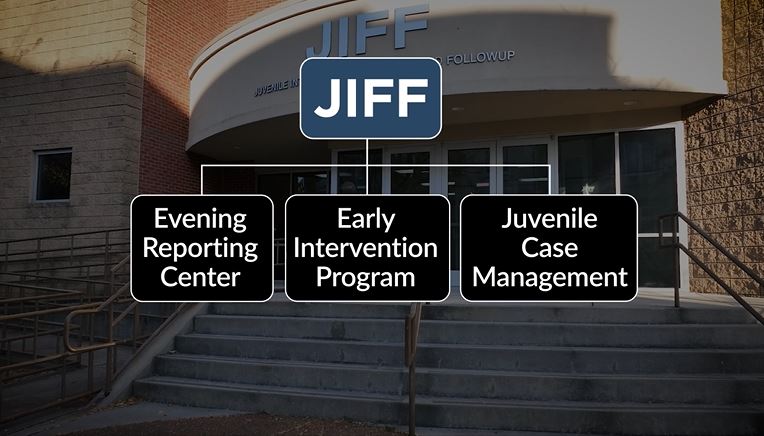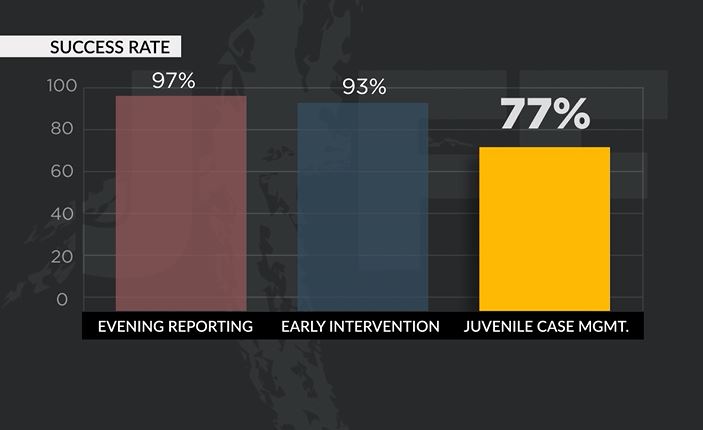MEMPHIS, Tenn. — WREG’s in-depth investigation into kids and crime continues with a Memphis program working to help children get back on the right path.
“I wanted to be the president at one point,” Knyia Jones said. “But I decided the president is the poster boy, so I want to be a senator or a congresswoman.”
Jones is ambitious, but her path wasn’t always this clear.
A bad day in her junior year of high school turned into a bad brawl with a classmate. She was charged with assault, and at a Shelby County Juvenile Court hearing, she was referred to JIFF.
“I was so relieved,” Jones said.
JIFF stands for Juvenile Intervention and Faith-Based Follow-Up. It’s a non-profit in Memphis providing youth with skills, support, and Christ-centered teachings. They pair the children with mentors and offer a safe space to open up.
“I was very depressed. My depression at the time showed up as anger. I felt like I could take my anger out on whoever I wanted to at the time. I wasn’t talking about it. I was keeping it bottled up, and on that day, I was like I’m going to take it out on this girl,” Jones said.
“One day after church, I was fixing to head back home with my cousin.” Vincent Porter said.
He said instead, they went to a music video shoot in the neighborhood where guns were flashed and police were called. Officers say they saw a gun next to the 14-year-old’s leg.
“They say since it was next to my leg it was in my possession, so I had to go to juvenile,” Porter said.
As in juvenile court, where he also was referred to JIFF.
Porter said it helped him stay on the right path because it helps “keep my mind straight, and it gave me a lot of knowledge, like just in the world.”
A lot of the youth are referred by the juvenile court. Once referred, staff decides which of its programs is the best fit.
They have an evening reporting center, which is a month-long intensive program for boys, both violent and non-violent. An early intervention program for girls and boys focused on rehabilitation and reconciliation, and a more intensive program for boys with an average of three or more arrests.
“A lot of these youth are facing adult challenges by themselves,” program manager Mario Morgan said. “We also get them to reflect and realize how your choices could have affected the victim, the victim’s family, your family, and your friends. Your choices come with consequences.”
JIFF reports a majority of their kids get back on track. They said for their most intensive program offered, they have a 77 percent success rate.
Jhmar Williams said he was relieved when he was granted the option.
“Thank God. I would rather be here than in jail,” he said.
Williams is currently in JIFF. He didn’t want to say what landed him there. Just that he ran from police and this was the first time he got into trouble.
“It was stupid, I am not going to lie,” he told WREG.
Williams said the program has helped him determine his goals like going to trade school or maybe even the military. He wishes there were more adults trying to understand what kids are going through.
“If he doesn’t have nothing in the house to eat and you see your little brother starving, you are going to do what you got to do to get a piece of chicken,” he said.
In Memphis, 45 percent of children live below the poverty line and reports show 35,000 between 16 and 24-year-olds in Shelby County are not in school or are not working.
JIFF reports the youth they see are on average four years behind in school. External factors they believe often lead to crime.
“It’s important, so you can understand the environment they live in produces a certain type of person,” program manager Duane Stewart said. “We live by the premise that kids do well if they can.”
The word “If” is the key. He said the city must come together.
“There are food deserts. There is no source of grocery stores in the inner city. The resources and all of the after-school programs that used to be in the inner city are no longer there,” Stewart said.
As for Jones, her past is behind her.


She’s now in college and working toward her goal of giving back to her city.
“Everything God does is with purpose. There was a reason for me to do that and for me to end up here and meet the people I met and make the changes I made,” she said.
What to know more about JIFF?
The non-profit has been around for over 50 years.
Referrals for JIFF come from juvenile court, the public defender’s office, the Youth Services Bureau, and others. The organization is also taking community referrals as well.
To learn more about JIFF and its programs: click here.























